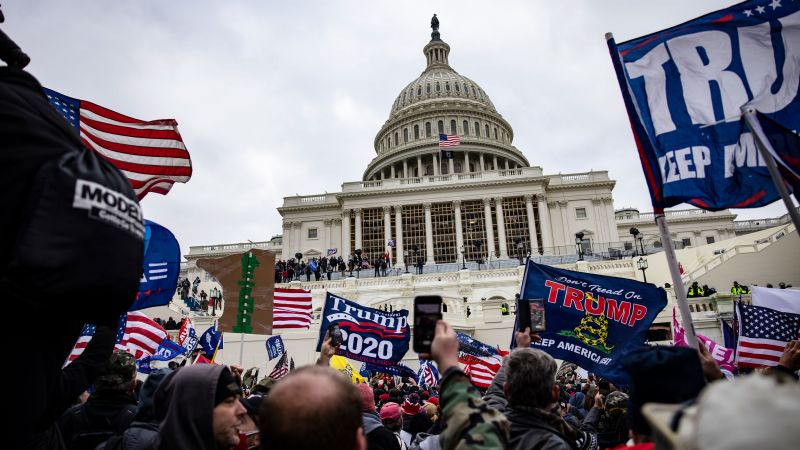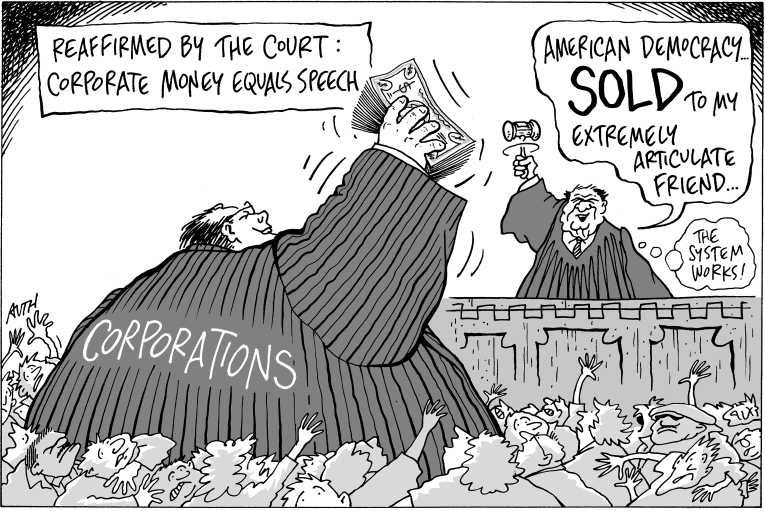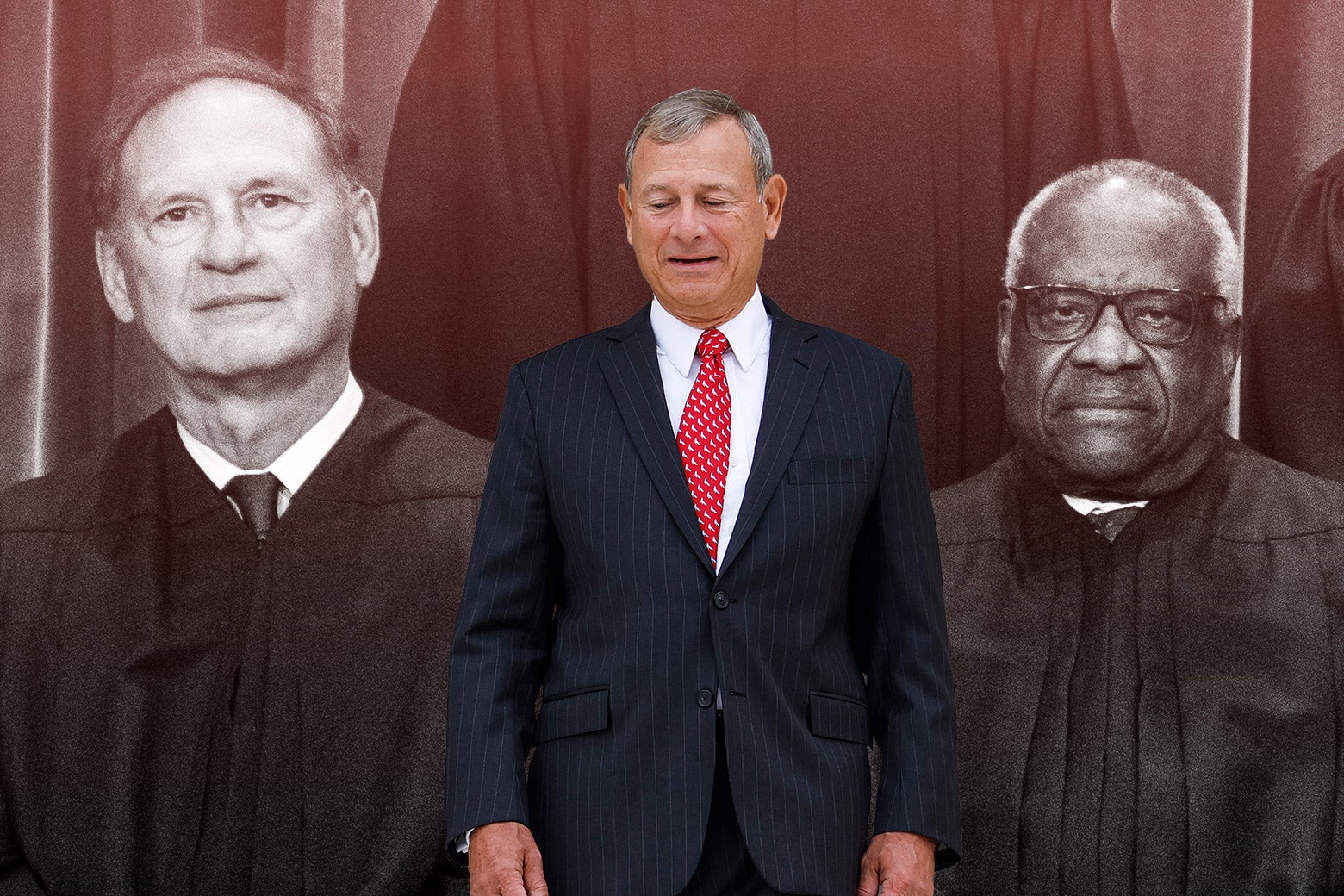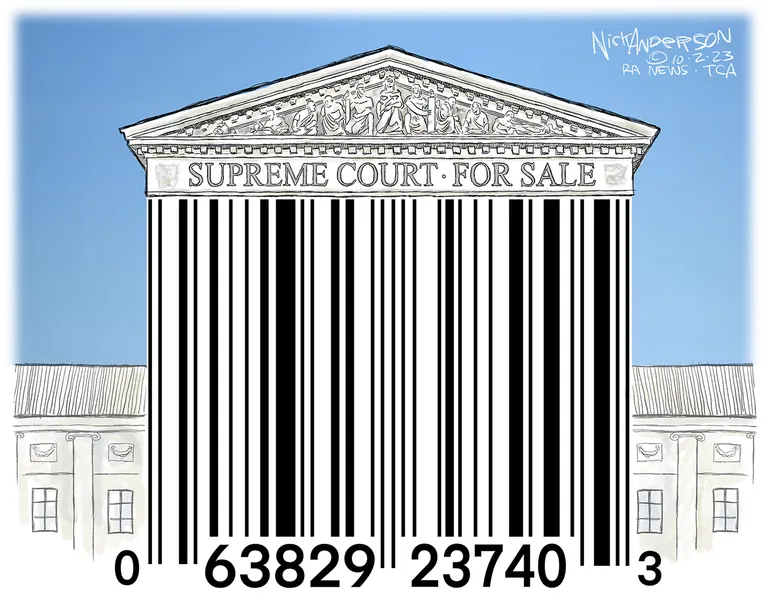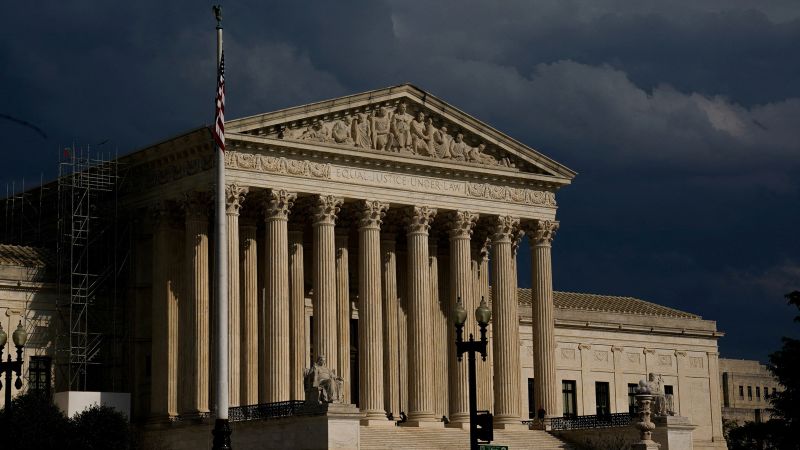2 Likes
#scotus
SCOTUS will soon be presented with an opportunity to destroy itself. Are enough of them smart enough to see that opportunity for what it is?
Almost certainly not. After all, 2/3 of them are republicans.
Colorado Supreme Court makes surprise move to ensure US Supreme Court upholds Trump ruling
https://www.youtube.com/watch?v=WE6BifxlJJQ
6 Likes
18 Comments
🤞
Opinion: Trump shouldn’t look for help from the Jan. 6 case the Supreme Court accepted
And who is "hostage" to #TrumpVirus? Those already facing #justice maybe? But Lord of the Lies Don thinks bad is good, up is downl..
#truth #accountability #Jan6 #sedition #SCOTUS #WordSalad
⚖️
2 Likes
2 Comments
1 Shares
Bullet dodged. For now.
SCOTUS responds to Jack Smith's motion to speed up Trump presidential immunity petition
This could have been bad. And with today's SCOTUS, it was likely to be. It still could be bad.
9 Likes
12 Comments
Seems rather like the point I see being made quite a bit "here", there, and everywhere...
#Corporations #CorporateRule #Oligarchy vs #Democracy #Justice #SCOTUS #TheSystem #wealth
4 Likes
3 Comments
Here’s the Thing About that “New” Supreme Court Ethics Code
[T]he new/old rules are not precisely binding on the justices. That’s because the old rules, like the new ones, lack any sort of enforcement mechanism. So if the old rules were advisory principles, to which the old justices could look for guidance in deciding whether or not to adhere to them, so too the new rules, which are binding, will mainly serve as guidance to which the justices may newly look for guidance.
[I]t is not the justices who have misunderstood the various sources, canons, common law provisions, etc. […] The confusion, in reading the old rules, was evidently ours and ours alone. In order to dispel a public misunderstanding of the old rules—and why some members of the court declined to abide by them—the court is repromulgating virtually the same rules, which they themselves will enforce, but this time assuring us that we got it wrong the first time when we didn’t think they alone should enforce them. Trust the same justices who declined to follow the old rules to better adhere to the new ones, they urge. This time they really will unilaterally and in secret make better choices. Then and only then will your confusion desist.
Surely yet to come will be the graphic novel version of the old rules, the Netflix version, and the collectors’ edition action figurines, each of which will affirm that the rules—once confusing to the public but always crystal clear to the justices—are now crystal clear to everyone.
4 Likes
Senate Judiciary Committee announced plans to vote to subpoena billionaires who reportedly gave lavish gifts to #SupremeCourt Justices #ClarenceThomas & #Alito.
Sen. Durbin (D-Ill.) & Sen. Whitehouse (D-R.I.) said in a statement that they plan to subpoena billionaires Harlan Crow & Robin Arkley, as well as conservative judicial activist Leonard Leo. #SCOTUS
https://www.axios.com/2023/10/31/democrats-supoena-harlan-crow-leonard-leo-supreme-court-justices
8 Likes
1 Comments
Yeah, but gerrymandering is what you get when you have only two major political parties--so there's that.
♲ Jackie Gardina - 2023-10-13 13:10:46 GMT
The current #GOP dysfunction in the #House is what happens when you #gerrymander extreme districts. In 1996, Karl Rove wrote an oped in the WSJ proclaiming that “he who controls redistricting controls Congress.” Well, jokes on him (and everyone else).Unfortunately, the #GOP was successful in targeting statehouses, controlling redistricting, and suppressing the #vote with a lot of help from #SCOTUS. And here we are.
#democracy #uspolitics #uspols
https://www.wsj.com/articles/SB10001424052748703862704575099670689398044
3 Likes
1 Comments
Another SCOTUS Right-Wing Sham Ruling Exposed

#thomas #scotus #corruption
https://www.youtube.com/watch?v=WZEh5R3Bkf4
9:35 min video
4 Likes
1 Comments
5 Likes
3 Comments
1 Shares
4 Likes
In 2019, a panel of US judges permanently dismissed all 83 ethics complaints filed against Brett Kavanaugh around the time of his confirmation hearing without considering their individual merit.
EIGHTY-THREE ethics complaints filed against Brett were not investigated.
What crimes did he commit? Whose rights did Brett violate?
EIGHTY-THREE PERSONS BRAVE ENOUGH TO FILE THE COMPLAINT. #corrupt #scotus
8 Likes
1 Comments
One person like that
1 Shares
8 Likes
3 Likes
1 Shares
The Supreme Court’s latest opinion means innocent people must remain in prison
Clarence Thomas’s majority opinion ensures that innocent people will spend years behind bars.
:format(webp)/cdn.vox-cdn.com/uploads/chorus_image/image/72393426/894670852.0.jpg)
The Supreme Court just ruled that at least some federal prisoners who are completely innocent must serve out their entire sentence, with no meaningful way to challenge their unlawful conviction.
One of the most fundamental principles of criminal law is that no one may be convicted of a crime unless the legislature previously passed a law making their actions illegal. If there is no law on the books that, say, marijuana possession is unlawful, then a judge cannot toss someone in jail because they were found with a joint.
The Supreme Court’s 6-3 decision in Jones v. Hendrix, handed down Thursday, does not directly attack this foundational principle. Instead, it does so indirectly by prohibiting many prisoners from ever challenging their convictions in court.
The case centers on Marcus DeAngelo Jones, a federal prisoner who was convicted in 2000 of possessing a firearm after being convicted of a felony. Nineteen years later, in Rehaif v. United States (2019), the Supreme Court held that no one may be convicted under this felon-in-possession statute unless they knew they had a felony conviction at the time that they possessed the gun.
Jones says that he (incorrectly, but genuinely) believed that his previous felony conviction had been expunged when he purchased a gun, and thus his conviction was invalid under Rehaif. In essence, he claims that no federal law criminalized his possession of a firearm, because he did not know he had a felony conviction.
Thanks to Thomas’s opinion in Jones, however, we will never know if Rehaif invalidates Jones’s conviction — that is, if he is innocent of the crime that caused him to spend nearly a quarter-century in prison — because the Court held that Jones may not challenge his conviction at all.
The reason why is a federal law, known as Section 2255, which ordinarily prevents federal prisoners from challenging their conviction or sentence more than once. ...
3 Likes
8 Likes
1 Comments
4 Likes

